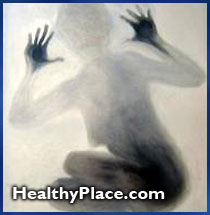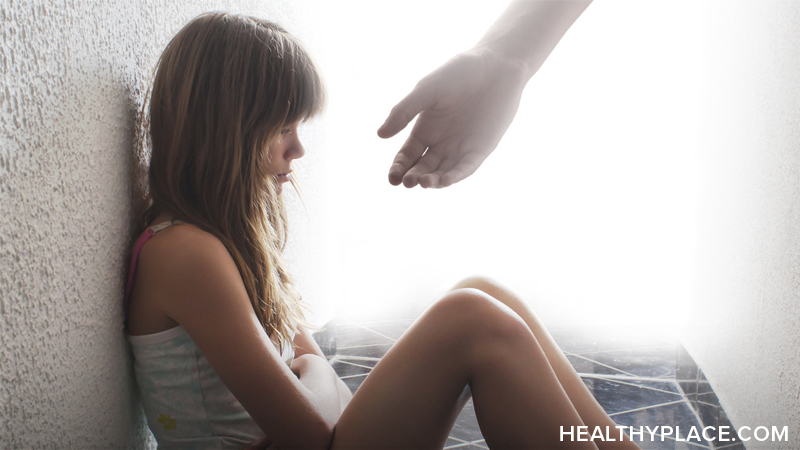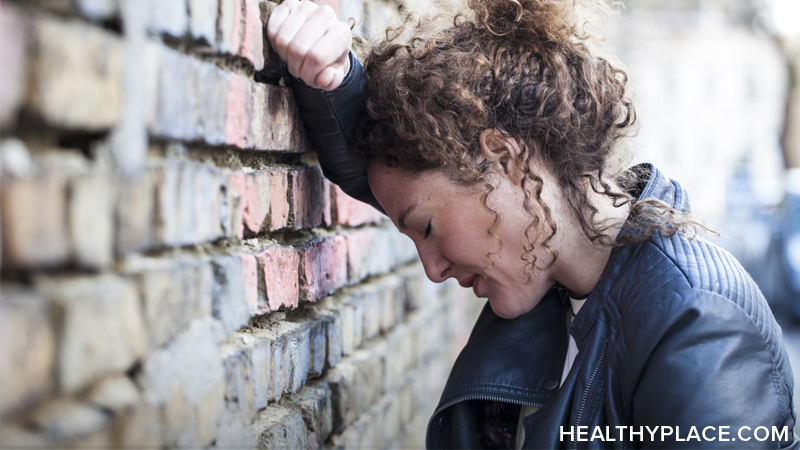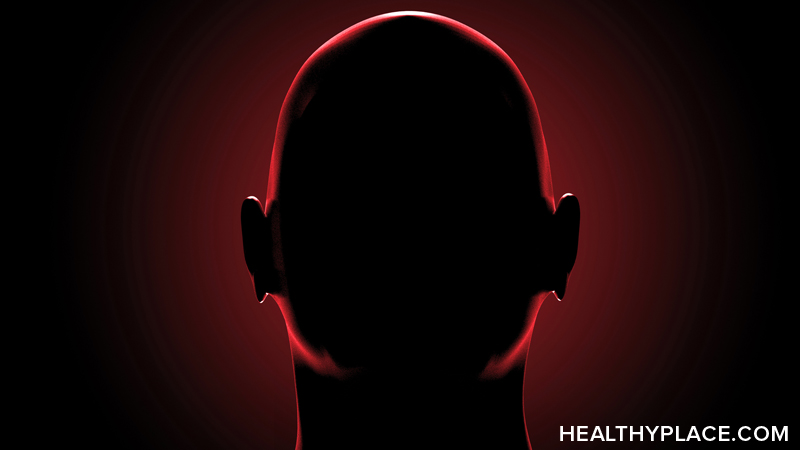
"Courage is resistance to fear, mastery of fear--not absence of fear."
-Mark Twain
I will try to tell my story, the best I can. Much of it I know, and maybe will be too difficult to tell. Then, I believe there is still much of it that I do not yet know. So there will be some blank areas in this story. I wish it were not true, but it is. I also want to remind you and myself, as I begin to tell it, that I and YOU survived, and we CAN and WILL, together. Also, I reassure YOU and ME that we are not alone.
I suspect that my abuse began when I was about 6 or 7 months old. It was just me and my mother at that point. Then we were united with my dad. (We had been separated because of his work.) I suspect that he was jealous of the attention I got. It had been just my mother and I since I was born...and I wasn't 'in the way'...which was the case all of my growing up years, and even maybe until my dad's death a couple years ago.
My gut feeling, too, is that I was sexually abused at this age. I clearly remember being left alone, abandoned, when not quite 3 years old. I remember my terror, and whatever else a little one feels at that age. I was definitely confused. It was a punishment because I was not eating my dinner fast enough to suit them. Strange enough, I did not eat well. My mother even took me to the Dr. to see if something was wrong with my throat. I wonder why? I still have problems eating and swallowing, and even do some vomiting, when I remember what all was shoved into my mouth, that had no business being put there!
When I was left alone that night, I remember wondering 'didn't they love me?' I have had flashbacks of an time when my mother was sexually abusing me, looking at my dad, and laughing I was looking down on the bed, at ME, this little confused, hurt little girl. 'What were they doing to me?'
When I was about 4 or 5 years old, my dad disciplined me by taking me out into the dark night, holding my left hand in the front door, reaching in and locking the door, and slamming it shut on my hand. He ran, while I stood there and screamed. It only caught the tips of my fingers. But it did something far deeper to the heart of me. Eventually, my mother came to the door and let me in, never commenting on what had happened.
I also have many...TOO MANY to count...memories of beatings with the wire side of a wire hair brush, belts, branches off trees in our yard...that I had to go get myself. If the branches were not heavy enough, then I had to go out and get another one, or HE would go out and get one. So I would get the biggest one that I could find and get off the tree. Then I had to wait, and wait, until he decided to come out and use it on my bare skin.
I also remember the metal end of the razor strap...and the sound of it. I remember his left hand holding my left hand, to keep me from falling, when he was using it on me. I also maybe a 1 or 2 week wait, knowing he planned to use this on me. (This all is VERY hard to write). The beatings went on until I was 11 or 12 years old, when he started kissing me on the mouth. It was a yucky kiss that I hated and a display of affection that, way down deep in my little girl heart, I craved but did not like, because I knew it was fake. Finally I stopped that.
Since my youngest memories, I was told that I was not important, was ugly, fat, stupid, in every way that those things could be said. I was taught that what I thought and felt did not matter. I was taught that I had NO needs and NO feelings worth listening to. I was told that I was selfish, "stubborn and mad since the minute I was born." When I was hurt, I had to hide it. When I was sick, I had to stay in the back bedroom and could not come out. At mealtime, my mother would stick her head in the door and hand me a plate of food. She would not come near me. No comfort, no love. I was ...yuck...sick!
Then there were the times I was hit across the face and head, picked up and shaken, bouncing my head off the wall, as my dad shook me. Another favorite of his, was to slam my brother's head and my head together. I would see stars!
Then there were the socks filled with marbles, saved for trips in the car. The sock would come swinging back for my head. All of this discipline was "because I love you." "It hurts me worse than it does you." The ONLY time I was EVER held on my parent's lap was when my dad would hold me after just beating the hell out of me. He'd try to tell me that he did it because he loved me and because I was so bad. (My mother never held me on her lap.) Somehow I never could quite believe it. But I DID believe that I was VERY impossibly bad.
My first clear memory of sexual abuse, that I have never forgotten, was when I was around 4 or 5 years old. I feel it started long before this. But, THIS, I have never forgotten. It went on for some time, several years. I was being raped by a female, 8 years older than me. It was gruesome and ongoing. I remember spending a night with her and sleeping in her bed, trapped between her and the wall, while she raped me. I felt so confused and trapped, and DIRTY....and powerless. I was molested by 2 others when I was about 5-6 years old.
When I was nine, my uncle raped me with a knife at my throat to silence me. My four cousins were in the same room and I think they must have witnessed it. I also think that they were victims. One has since taken her own life. I have not felt strong enough to contact the others, but intend to. This bastard skum-bucket of an uncle is still alive. Now I know why I have always been afraid of him and had a creepy feeling around him, as a little girl, and even when I was grown up. I saw him only one time as an adult. He hated me and was angry that I was leaving the state!
There was also something horrible that happened to me when I was about 7 or 8 years old. I cannot tell you about it now. The memories are just starting to come around. I do not want to know, but I now know that I must if I want to survive and get on with my life. But it will be the final death of my childhood.
When I was 11, I was raped ongoing by a minister, threatened with a gun. I was also sodomized by this man...no BEAST. I was given the message that it was my fault and that I would die if I told. It has been torment, to tell. I have feared for my life because I have told. But, I am telling you NOW. I have had a lot of fears and feelings that I deserved to die. I KNOW that I deserve to LIVE and the THRIVE and SO DO YOU. It is not always easy to remember this.
The ages between about 7 and 11, I have no memory of, except the little bit of abuse I have mentioned. I feel deep down inside that there was a lot more. My mother gave me a bath, seemingly trying to scrub off my skin, especially my breast, when I was 11. I still hate her for this, for boundaries crossed. Boundaries were again crossed when I was 17, by another minister. I stopped it, before MY clothes were off. But HIS were already off.
I guess I want to say here that I am presently struggling to believe that all of this is really true, that it happened to ME. "Are they false memories?" I do not want to admit, especially, that my own parents crossed those boundaries. But I remember my mother 'setting me up' for my father's physical, verbal, and emotional abuse. There was NO protection from any of the other things that happened.
I remember wanting to run away, planning it, but having nowhere to go, and knew I would be found and returned home and beaten within an inch of my life. I remember daydreaming that my parents had died, and then crying and feeling guilty for thinking such a thing. I remember telling my mother about all the blood and her shrug of the shoulders, little smile, and telling me that 'it is nothing'. I ask myself now...if none of this really happened, if it is false memories, then WHY do I vomit violently, trying to throw up the 'thing' that was shoved into my mouth? Why do I gag on hard boiled eggs? Why do I trust NO one? Why do I know NOTHING about love? Why do relationships totally terrify me? Why do I crave constantly for someone to reassure me that they really do care and won't leave me? Why the depression? Why the panic attacks? Why the heartrending pain that makes me feel like my heart will break in two...the pain (emotional) that makes me whimper in the night and sob deep inside, with never a tear falling from my eyes. The list goes on-and-on. Why am I diagnosed with Post Traumatic Stress Disorder? Why do I withdraw deep into my shell at the slightest thing? Why have I nearly taken my life on a number of occasions? Why do I claw, breaking skin, causing physical pain--and 'it feels so good'? Do YOU think that I have been abused?
It is so hard to admit that my "perfect family" was so FAR less than even mediocre. And now, as I go through the memories, hitting me, unbidden, unwanted, just keep on coming. My body also remembers, with vomiting, pelvic, pubic pain, rectal pain and bleeding? I ask again: was there abuse in my life?
I DID think of myself as a victim, until not so long ago. I thought I could NEVER call myself a SURVIVOR. I do not even know when I started using that word to describe myself. But I DO. We ARE survivors. We have come through the most horrendous battle, struggle for life. It is not over, but the worst IS over and we lived through it.
Do I always believe this? NO, I DO NOT. Sometimes the pain is so bad, that I know THIS is the worst and it will never end. But, reality is, IT WILL END. The living through it WAS the worst, and that is why we blocked it out. Our bodies went numb (and does, as I remember), and sometimes we left our body behind, separating ourselves from what was happening (I also do this as I remember). But we survived. I share all of this with you, painfully. I want you to know that you are NOT alone. I also want you to know that I CARE about YOU.
I Now know that I was being molested as a baby and the raping continued until I was 19 or 20 years old. This has been very hard to take. Very hard. But I take one day at a time. I WILL Heal!!!
-Cygnet









